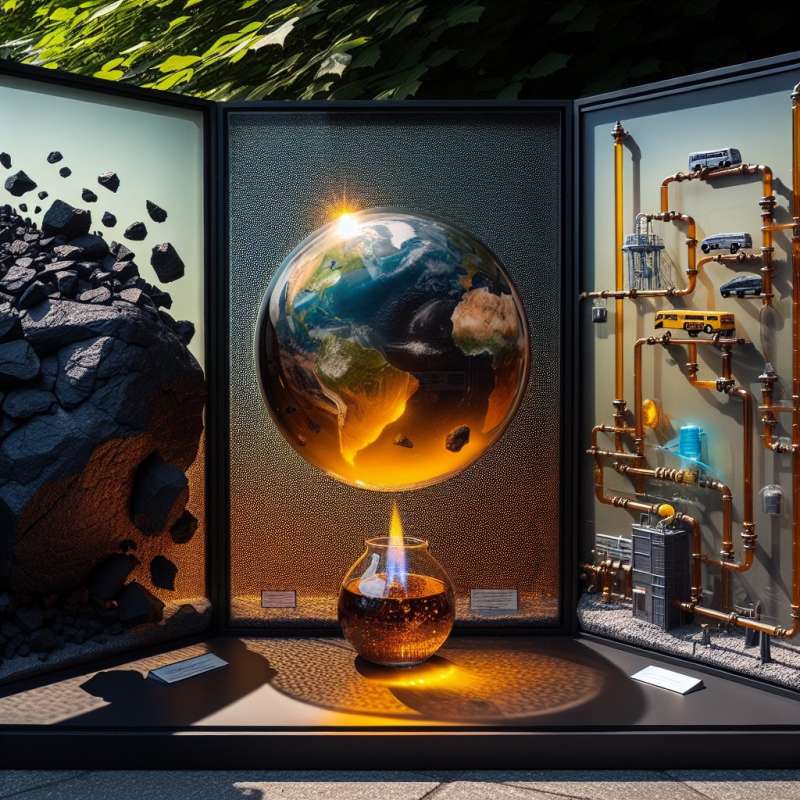
Fossil Fuels Introduction
Fossil fuels, formed from ancient organic matter, are major energy sources. They include coal, oil, and natural gas, originating from prehistoric plants and animals over millions of years.
Formation Process
The formation of fossil fuels is a complex process, starting with decomposition in anoxic environments, followed by heat and pressure transformations over 50-300 million years, creating different fuel types.
Types of Fossil Fuels
Coal, a sedimentary rock, is carbon-rich and used for electricity. Oil, a liquid hydrocarbon, powers transportation. Natural gas, mainly methane, is burned for heat and electricity.
Fossil Fuels and Carbon
Fossil fuels store sun's energy in carbon bonds. Burning them releases this energy but also carbon dioxide, contributing to greenhouse gases and climate change.
Energy Density Surprise
Fossil fuels have high energy density. Just one kilogram of oil can release about 10 kWh of energy, which is equivalent to the energy output of an average person working for two weeks straight.
Global Dependence
Despite environmental concerns, fossil fuels provide about 80% of the world's energy. Transitioning to renewables is vital but challenging due to infrastructure, economic factors, and energy storage issues.
Fossil Fuel Reserves
Known fossil fuel reserves could support current global demand for about 50 years for oil, 150 years for coal, and 200 years for natural gas, but this extraction could exacerbate climate change dramatically.
What are fossil fuels formed from?
Modern-day plant matter
Prehistoric plants and animals
Artificial chemical processes
Company